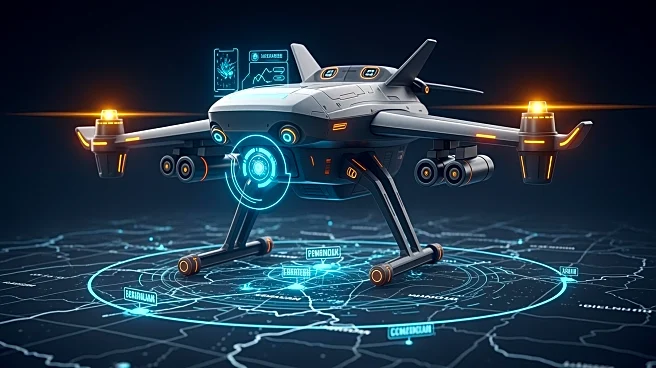What's Happening?
Sweden's top air force official has issued a warning to NATO allies, emphasizing the need for rapid innovation in weapon systems to avoid losing future conflicts in Europe, particularly against Russia. The official highlighted the importance of adopting
strategies similar to those used by Ukraine, which has been involved in ongoing conflicts with Russia. This call to action comes amid broader discussions about the pace of military development and the necessity for NATO to adapt to new threats. The statement underscores a growing concern within NATO about the alliance's current capabilities and the need for modernization to maintain strategic advantages.
Why It's Important?
The call for innovation within NATO is significant as it addresses the alliance's ability to respond to emerging threats, particularly from Russia. This development could impact defense policies and military spending among member countries, potentially leading to increased investments in advanced technologies and weapon systems. The emphasis on innovation reflects a strategic shift that could influence global military dynamics and alliances. Countries within NATO may need to reassess their defense strategies and budgets to align with these new priorities, affecting defense contractors and military industries across the U.S. and Europe.
What's Next?
NATO members are likely to engage in discussions to evaluate their current military capabilities and explore avenues for innovation. This may involve collaborative efforts to develop new technologies and enhance existing systems. The alliance could also see increased pressure to meet defense spending targets, as member countries work to bolster their military readiness. The response from Russia and other global powers will be closely monitored, as changes in NATO's strategy could alter geopolitical dynamics and influence future diplomatic and military engagements.
Beyond the Headlines
The push for innovation within NATO raises questions about the ethical and strategic implications of military advancements. As countries invest in new technologies, there may be concerns about the potential for an arms race and the impact on global security. Additionally, the focus on innovation could lead to debates about the balance between military spending and other national priorities, such as healthcare and education. The long-term effects of these changes on international relations and peacekeeping efforts will be an area of ongoing analysis.















